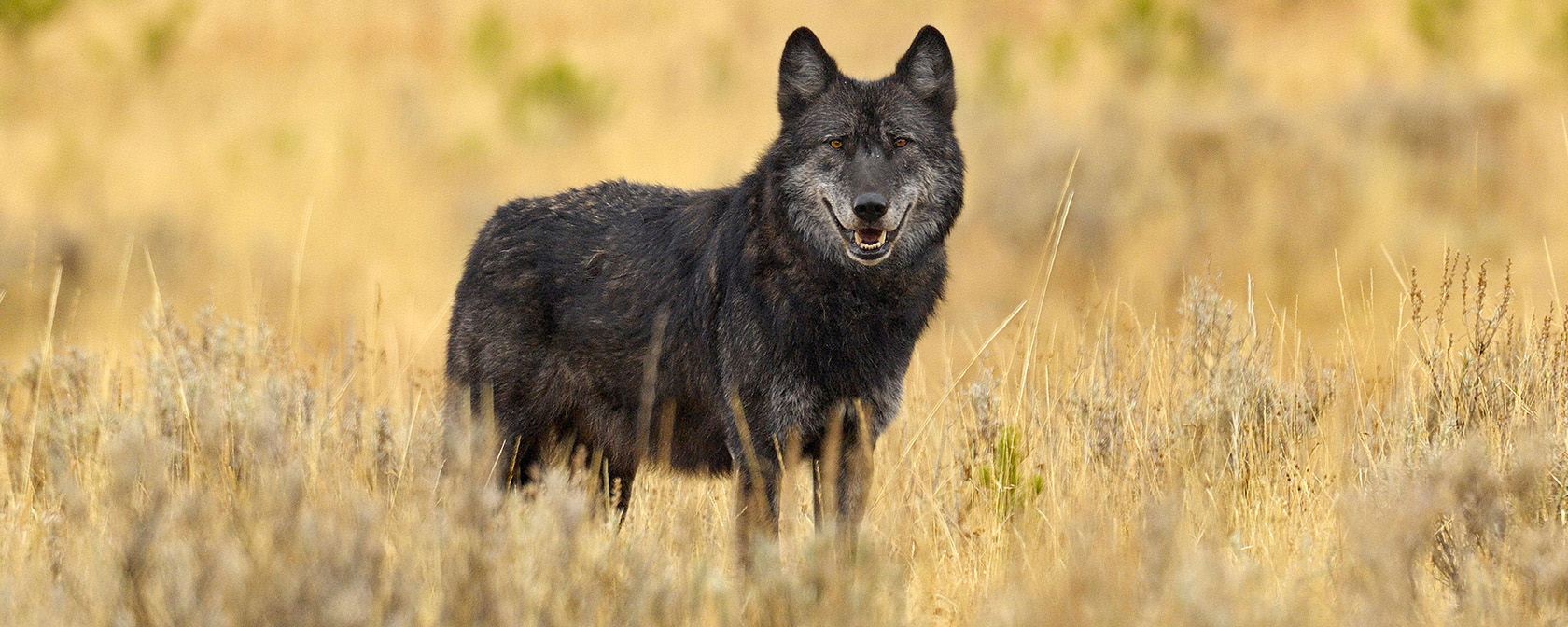By Sara Amundson and Kitty Block
Today, with our allies, we sued the U.S. Fish and Wildlife Service over its decision to not reinstate federal protections for wolves in the Northern Rocky Mountains. In 2022, most wolves in the U.S. regained their federal protections under the Endangered Species Act when a federal judge ruled in their favor in response to a lawsuit we filed with other groups—most wolves, but not all. Wolves in the Northern Rocky Mountains, including in Idaho, Montana and Wyoming, lost federal protections years ago, and the 2022 court decision did not impact their status.
Since losing federal protections, wolves in the Northern Rocky Mountains have suffered relentless persecution from trophy hunters, trappers and predator control agents. Conditions for wolves in Idaho and Montana became even worse in 2021 when those states enacted policies aimed at decimating their populations through wolf killings. As public policy, this is nothing less than disastrous. Recent scientific research concludes that the level of genetic variability in U.S. wolves, including in the Northern Rocky Mountains, is already insufficient to prevent long-term extinction risk. Drastic population declines associated with their persecution will exacerbate that harm. Plus, small and fragile wolf populations in other parts of the Western United States—such as California and Colorado—depend on the migration of wolves from the Northern Rocky Mountains. When wolves migrate, they can establish packs in new habitats and also connect different wolf populations, which enhances genetic health. In contrast, killing wolves can limit this range of movement and fragment wolf populations.
In the face of such reckless conduct by these states, we and our allies submitted a legal petition to the U.S. Fish and Wildlife Service in May 2021 requesting that federal protections be restored to wolves in the Northern Rocky Mountains. The agency determined our request may be warranted in September 2021, when it launched a review of their status. Yet, in February 2024, the agency ultimately denied our petition—despite finding that wolf killing under state laws could reduce the region’s wolf population from an estimated 2,534 wolves down to as few as 667 wolves.
Consider the facts. New Montana laws allow wolves to be killed using bait and strangulation snares, permit a single person to kill 20 wolves each year, and lengthen the state’s wolf-trapping season.
In about 85% of Wyoming, including along the entire Colorado border, wolves can be killed without a license in nearly any manner and at any time. Wyoming hunters have killed several wolves just miles from the border with Colorado, a state to which wolves are finally returning through dispersal and release.
In Idaho, recent changes allow the state to hire private contractors to kill wolves, allow hunters to purchase an unlimited number of wolf-killing tags, and permit hunters to kill wolves by chasing them down with hounds and all-terrain vehicles.
And right now, with respect to that state, we’re doing something about the carnage. Last month, we and our allies succeeded in obtaining an injunction halting wolf trapping in parts of Idaho. The court agreed that indiscriminate traps and snares set for wolves under Idaho’s liberal new laws will unavoidably injure or kill federally protected grizzly bears. But protecting wolves needs to be an end in itself, not a contingent consequence of protecting other animals. While this is an important victory, wolves in Idaho and across the northern Rockies are still imperiled by reckless state management practices. Federal protections are necessary to ensure their survival.
Nearly 30 years after the first wolves were brought back to Yellowstone National Park and the Northern Rockies, and after millions of tax dollars spent on this important restoration, they are once again on the precipice of disaster.
The evidence for relisting Northern Rocky Mountain wolves under the Endangered Species Act is overwhelming, and we will not stand by while the federal government allows Northern Rockies states to continue their hostile assault on wolves. We’re taking our fight to court on behalf of wolves in that region and the millions of Americans who care about them and want to see them protected.
Kitty Block is CEO of the Humane Society of the United States.




